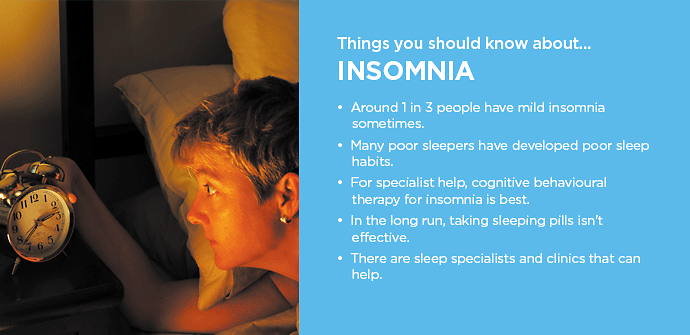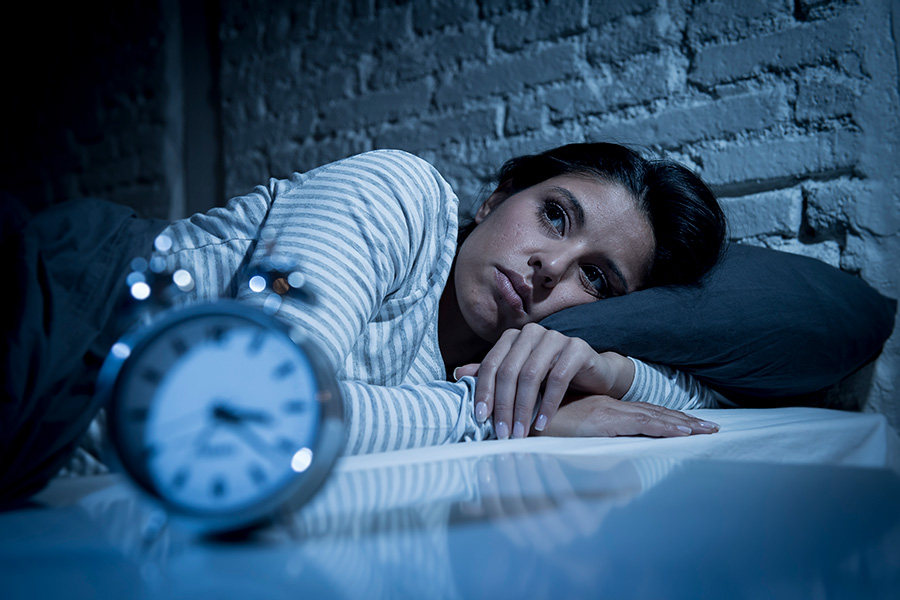As statistics around mental health illness in Australia continues to rise at an exponential rate, there are constant calls for increased awareness of the issue.
A couple of weeks ago The Greek Herald spoke with Helen Eleni Andrianakis, a senior mental health drug and alcohol clinician and psychiatric nurse practitioner, on the importance of family responsibility in managing mental health illness in the community.
READ MORE: Mental health expert emphasises family responsibility in monitoring mental health deterioration
Today we continue this dialogue, moving on to a greater discussion about some of the common effects of mental health illness, specifically looking at insomnia.
All humans experience irregular sleeping patterns during different stages of their lives, and this doesn’t mean people should be immediately concerned. In fact, the Sleep Health Foundation says that approximately one third of Australians experience insomnia at some point in their lives, and only 5% will need professional treatment.
However, insomnia should be treated no differently than other mental health illnesses. Left unmonitored, it has proven to be “extremely dangerous” to our bodies.

“It’s extremely important to monitor and it’s not necessarily something you need to be embarrassed about, because we all have some complications or problems in our life,” Helen says to The Greek Herald.
“You know what works for you and you know what doesn’t work for you.”
Helen stresses that maintaining balance is key to having a strong mental health. Without a good lifestyle balance, people can be at risk of further mental health deterioration. With no sleep and an unorganised schedule, insomnia can be catalyst for illnesses such as depression and anxiety.
“You’re not able to balance, you’re not able to make proper decisions, you’re not able to have a normal direction in your life, you’re not able to work and you’re not able to study,” Helen says.
“A lot of people need to keep up a healthy diet and healthy balance, east properly, if you are a smoker then you get yourself on a withdrawal smoker regime.
“Everything is about a healthy lifestyle.”
Helen explains that insomnia can be the result of multiple underlying mental health issues, including:
- Trauma
- Poor lifestyle
- Lack of stability
- Anxiety
- Depression
- Medication
As a mental health illness, trauma can have a severe impact on our social lifestyle. Often brought upon by a life-changing event, insomnia as a result of trauma can be one of the hardest mental battles to defeat, especially when the traumatic event has taken place during the night.
“One of my clients, they’ve been taken off their parents for various reasons and have been dumped from foster care to foster care a total of seven times,” Helen says.

“One of the little girls says she can’t sleep at night because that’s when a lot of the trauma happens. So she was awake all night, and when it’s time to go to school she was sleeping.”
“Tell me if those poor children aren’t traumatised.”
Sleeping medication may be a viable temporary solution for insomnia, yet for some it can lead to very dangerous habits in the future. Helen warns that medication is being used as a justification for external side effects, such as over-indulging in food and smoking.
“Some clients eat healthy, don’t smoke and don’t drink, while other clients over-eat then blame it on the medication, then refuse to take the medication,” Helen says.
READ MORE: Why Greek youth are suffering in silence and the importance of intergenerational dialogue
READ MORE: George Laggis’ battle with suicidal thoughts and major depressive disorder
“They’ll order 24/7 fast food online. Now with COVID, we’re finding it’s even getting worse.
“We’re having clients in residential units sleep during the day, then awake all hours at night, and all they do is eat.”
Helen stresses that insomnia can lead to real social issues and should not be treated as simply a common side effect of a greater issue. If it continues to lead to a poor lifestyle, it should be brought up with a health professional.

“Be aware of the warning signs and communicate with your clinician or your medical professional,” Helen says.
“It’s best for them to talk to their doctor and write out a diary on the number of hours they sleep, what they do with the daily complications they are facing in their lifestyle, then their doctor will tell them what is happening.
“That’s how we identify it.”
Hypnotherapists and wellbeing clinics are other ways that people can properly manage their insomnia. A strong recommendation by Helen included visits to sleeping clinics, which monitor patients for up to 24 hours to properly diagnose their condition and what could be a potential cause.
BeyondBlue 1300 22 4636; Lifeline 13 11 14; Kids Helpline 1800 55 1800
Do you have a question you want to ask Helen? Email us at info@foreignlanguage.com.au

